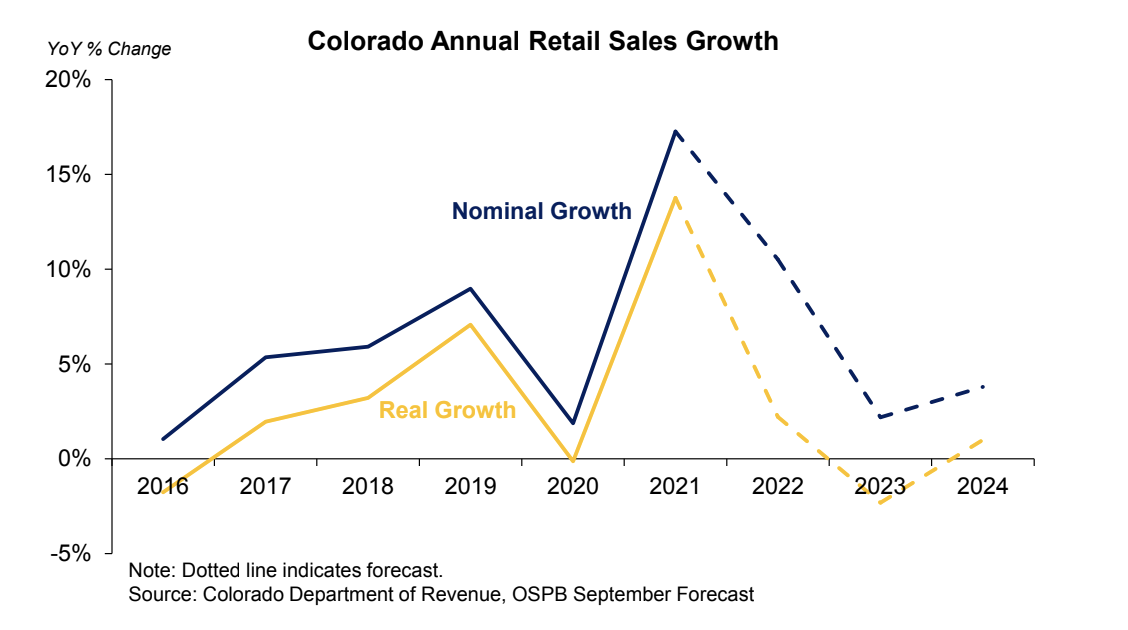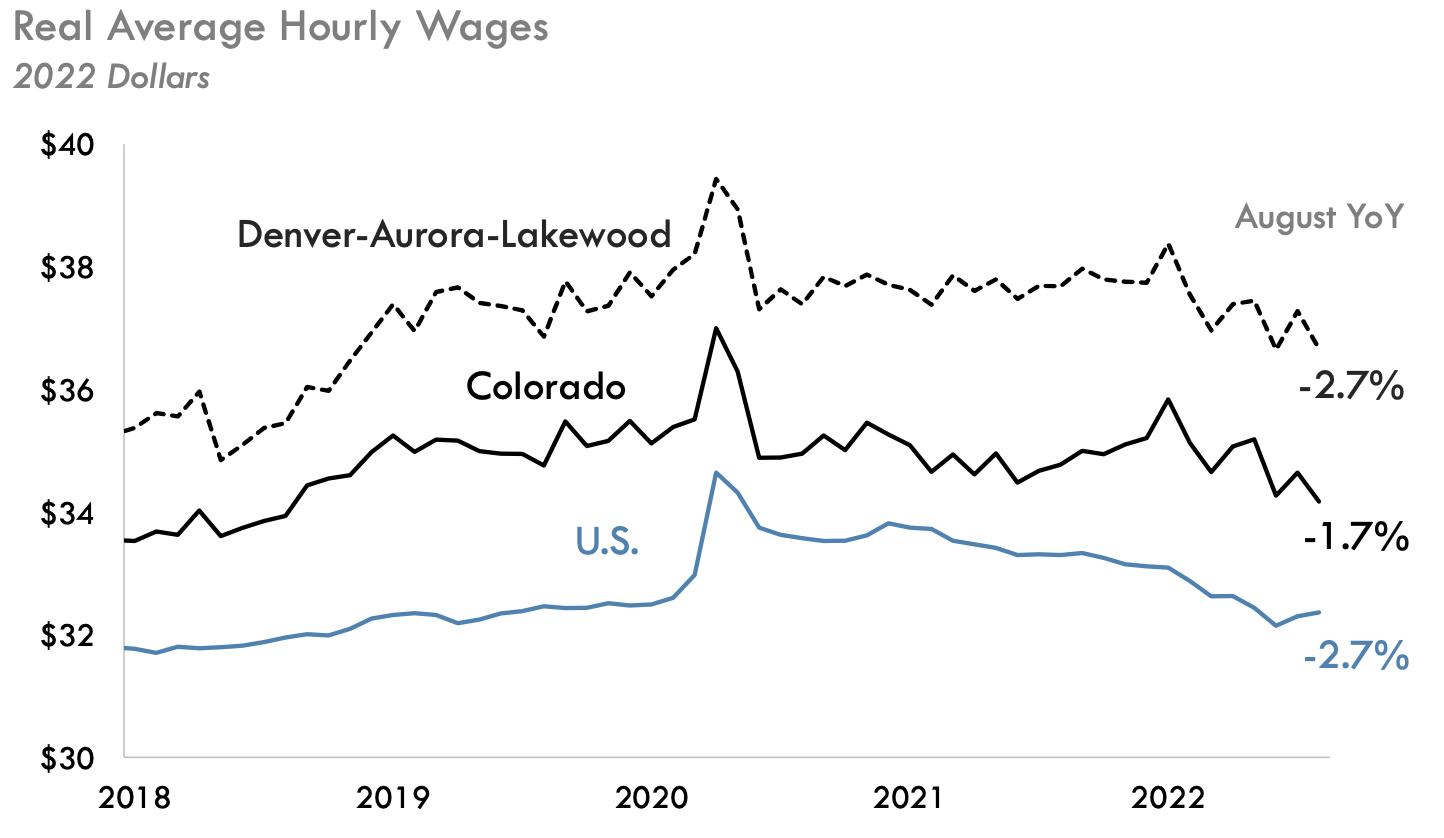What to know about Colorado's "precarious" economy
Add Axios as your preferred source to
see more of our stories on Google.

Illustration: Sarah Grillo/Axios
Two new forecasts offer a cautionary outlook on the direction of Colorado's economy after years of sustained growth.
State of play: Greg Sobetski, the Legislature's chief economist, called the current economic landscape "precarious" in a recent presentation to lawmakers.
The state's economy is moving into a transition period, economists said.
- For the first time in more than a decade, Colorado's economic growth is expected to plateau.
- The state budget's discretionary spending — the bulk of tax collections — is expected to see growth near 1% for the next two years before it expands to 4% in fiscal year 2024-25.
Details: Here are three dynamics — and data points — economists for the Legislature and Gov. Jared Polis highlighted in a recent presentation:

1. Risk of recession: The possibility of a recession in coming months is growing as rising interest rates and surging costs work to suppress consumer spending.
- In terms of real growth adjusted for inflation, the Polis administration's economists expect it to dip into negative territory in 2023.
- Colorado could fare better in a downturn because of the economy's reliance on service sectors, the governor's chief economist Bryce Cooke said.
2. Job growth will slow: The current labor market is strong, economists agree, and employment is at pre-recession levels, despite gaps for certain industries.
- Demand for workers is expected to slow given the economic headwinds. The governor's economists expect unemployment to average 3.5% for the year, slightly better than the 3.6% U.S. rate.
- In 2023, they believe the unemployment rate will rise to 4.3% in Colorado because of a tight labor market.

3. Inflation is real: The latest data points suggest that inflation may have peaked, economist David Hansen said.
- Home prices — which are largely driving inflation in Colorado — are expected to level off.
- The Denver metro's rate could still exceed U.S. levels in 2023.
Yes, but: Inflation is outpacing wage growth even as employers boost salaries amid competition.
- It's eroding consumer purchasing power, as real wages in the Denver metro declined 2.7% in August compared with the prior year. In Colorado, real wages declined 1.7%.
